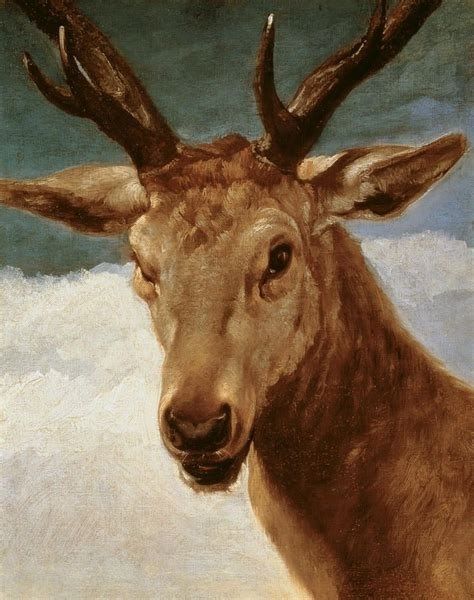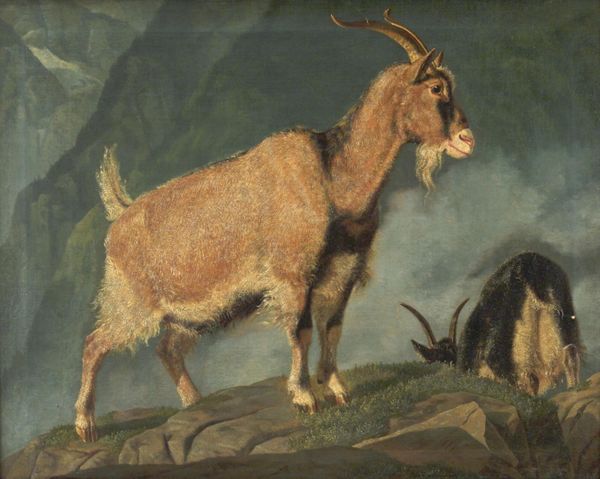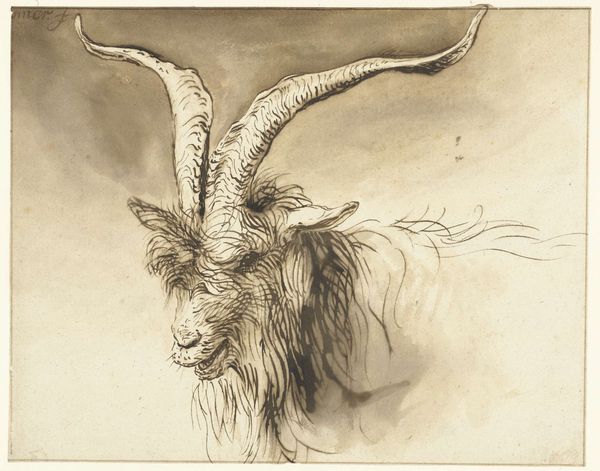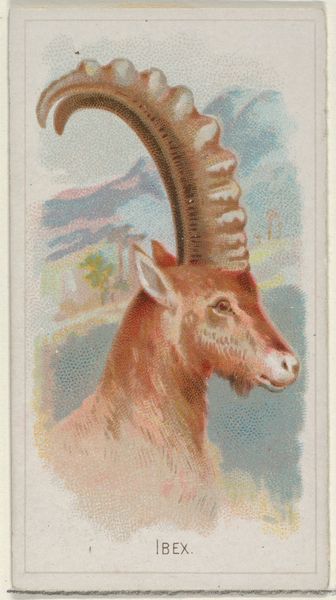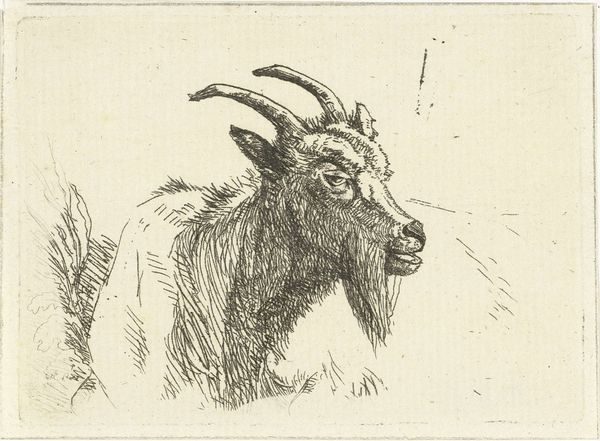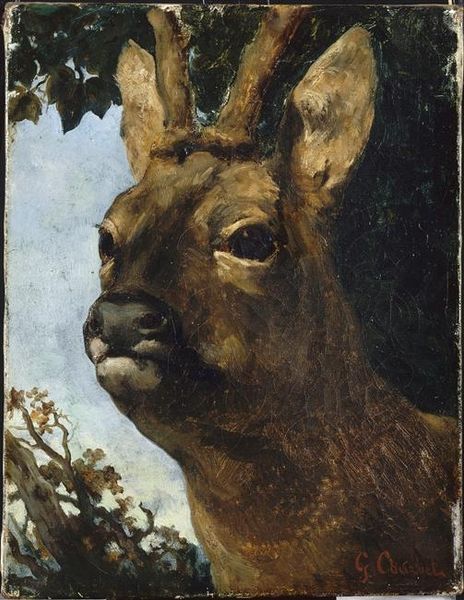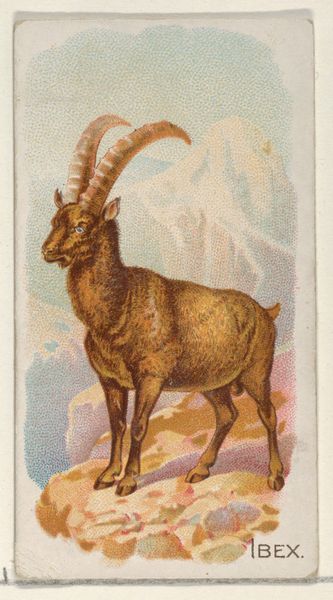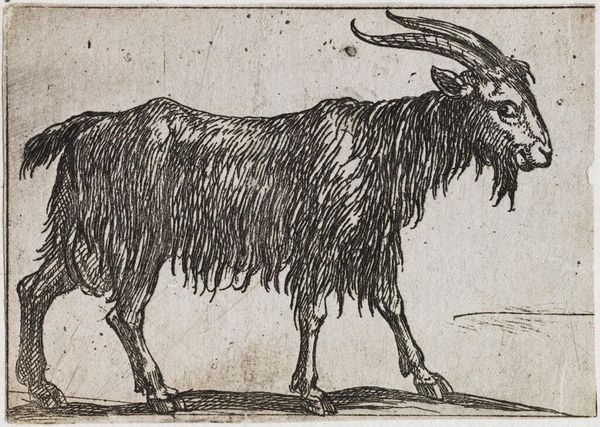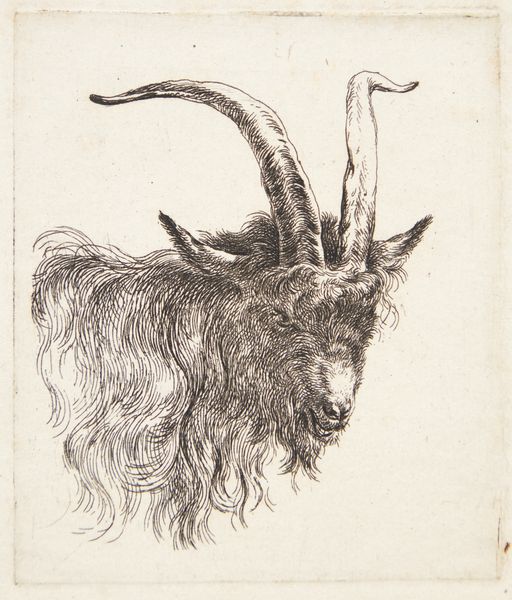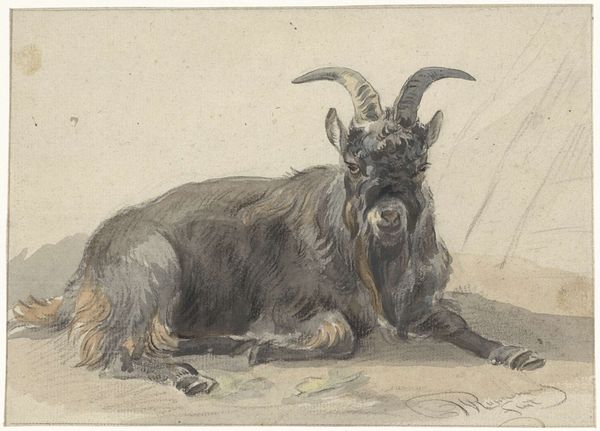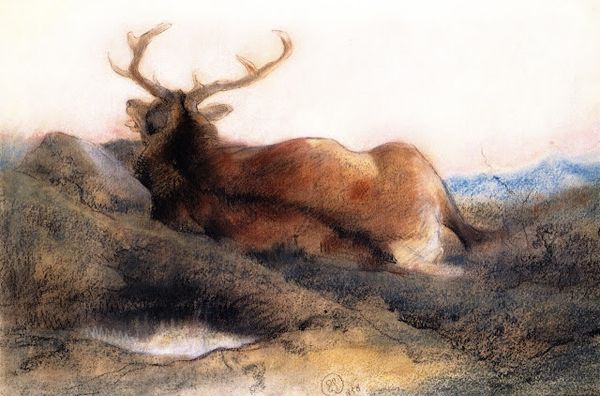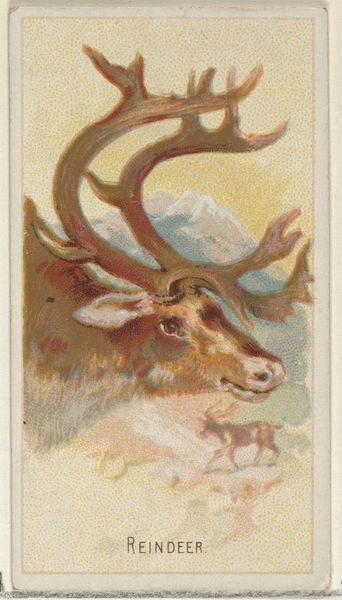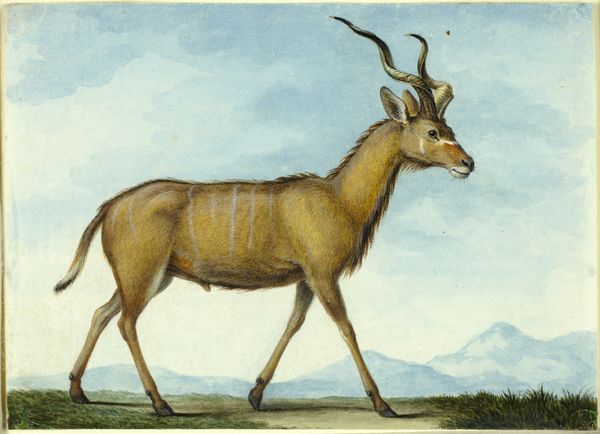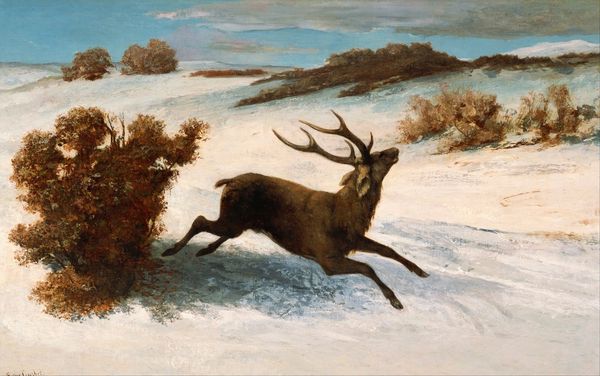
painting, oil-paint, impasto
#
animal
#
painting
#
oil-paint
#
landscape
#
oil painting
#
impasto
#
animal portrait
#
portrait art
#
realism
Dimensions: 38 x 46 cm
Copyright: Public domain
Curator: Oil on canvas, portraying a solitary animal, stark against the muted backdrop… It's Courbet’s "Head of Gazelle." There’s something compellingly direct in the animal’s gaze. What stands out to you? Editor: The thickness of the paint is pretty apparent and adds such a tangible texture to the image. How did the materiality impact the animal's image or the process itself? Curator: Precisely! The impasto technique is important. We see the labour, the sheer physicality of applying the paint. For Courbet, it was less about idealising the gazelle and more about truthfully capturing its essence using humble materials like oil and canvas. Think about how that disrupts established art world hierarchies! The “high” art subject of a portrait is now combined with “low” art materials treated very matter-of-factly, breaking down those cultural boundaries. Does that strike you as a meaningful gesture? Editor: Absolutely. Using impasto is already a kind of political statement to draw attention to the artwork and material. Do you think the average viewer understood this in Courbet’s time? Curator: That's a question! Courbet challenges academic painting with his material handling. The thick paint forces viewers to reconsider how art is made and consumed. Think of artmaking as labour... Were they equipped to look at painting that way, outside traditional ideas of beauty or virtuosity? Editor: It’s certainly a work that invites questioning, even today. Thanks for clarifying how material connects to context here. Curator: My pleasure. Materiality offers a compelling way to view art!
Comments
No comments
Be the first to comment and join the conversation on the ultimate creative platform.
